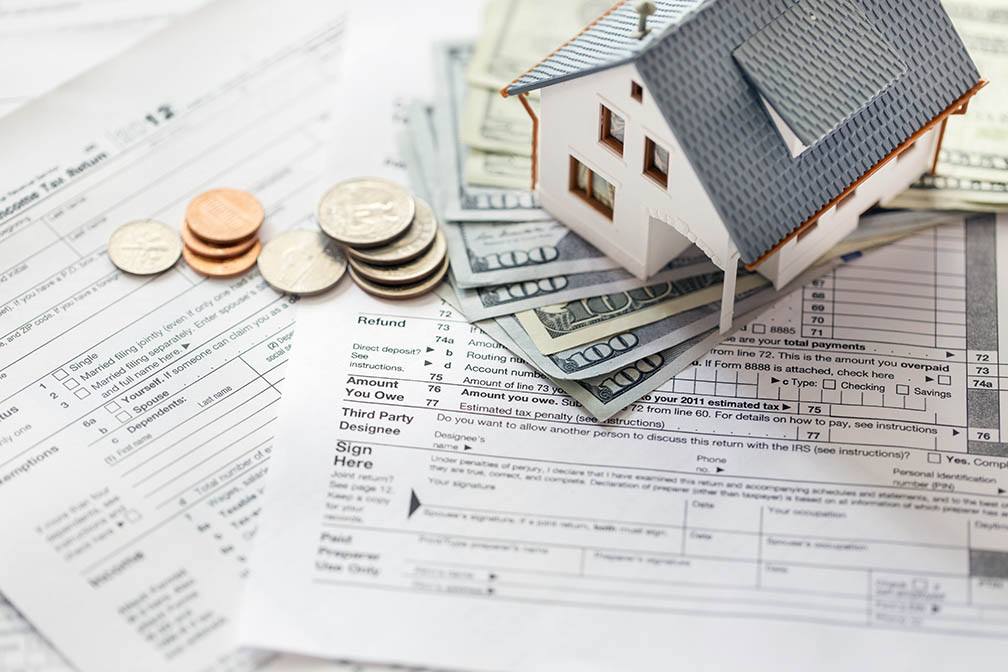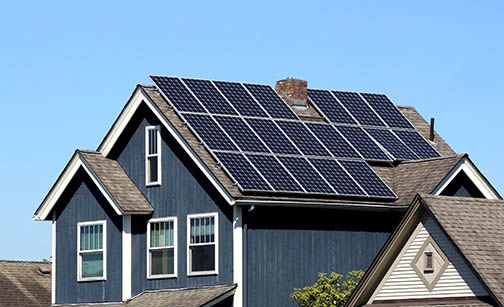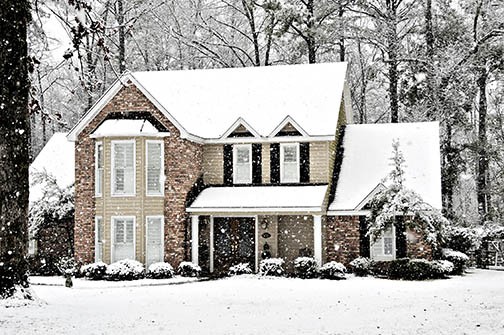 There are so many details involved in the mortgage process that you may not be aware of what pre-approval is if you’ve just entered the market. However, pre-approval assesses your ability to make monthly mortgage payments and can be an important first step in the home-buying process. If you’re currently contemplating a home purchase, here’s why you may want to consider pre-approval first.
There are so many details involved in the mortgage process that you may not be aware of what pre-approval is if you’ve just entered the market. However, pre-approval assesses your ability to make monthly mortgage payments and can be an important first step in the home-buying process. If you’re currently contemplating a home purchase, here’s why you may want to consider pre-approval first.
Improved Agent Attention
Real estate agents may be reluctant to spend the time or put significant effort into a homebuyer that has not been pre-approved for a mortgage. While a good real estate agent will assist you in finding a home that’s right for you, if you haven’t gone through the necessary process of determining if you’ll be approved, they may think it’s not worth their time to show you houses you may not be eligible to buy.
A Benefit For Home Sellers
In the event that you happen to come across a home that you want to purchase and make an offer prior to pre-approval, there’s a chance the buyer will not waste their time considering it. Because the pre-approval process can determine errors in your credit history and there’s a wait involved, many home sellers will not want to be held up by this process to sell their home. As a pre-approval can reveal errors and bump up your credit score, it can also be of greater benefit for you to have an accurate number going into the home purchase.
Determines Your Financial Health
While a pre-approval is not a sure sign that your mortgage application will be approved, it can provide a detailed look at your financial health. This means that if you happen to have a less flattering credit history than expected, you can go back to the drawing board, saving more money and making payments, to try and bump up your credit. While this isn’t necessarily enticing for the person who is ready to buy, it can be a benefit for the type of home you’ll be approved for.
It’s common to want to get out into the market and find the perfect house at the right price, but pre-approval is an important process that will help you determine the house you can afford. If you’re currently on the market for a new home, contact your trusted real estate professionals for more information.
 Are you thinking about buying that perfect new home? Whether you’re buying for yourself or a new home for a family, there will be many costs involved. Let’s take a look at 3 budgeting tips that will help make home ownership on a single income easier.
Are you thinking about buying that perfect new home? Whether you’re buying for yourself or a new home for a family, there will be many costs involved. Let’s take a look at 3 budgeting tips that will help make home ownership on a single income easier. When you’ve been in your home for a while and have established a certain amount of equity, it can be a good feeling to know that you have an investment you can count on. However, with changing weather patterns you may be afraid of a natural disaster striking and what it could mean for your financial well-being. If you’re curious about how this can impact your mortgage, here are a few things to consider.
When you’ve been in your home for a while and have established a certain amount of equity, it can be a good feeling to know that you have an investment you can count on. However, with changing weather patterns you may be afraid of a natural disaster striking and what it could mean for your financial well-being. If you’re curious about how this can impact your mortgage, here are a few things to consider. The idea of purchasing a property and having renters can be an exciting business venture that offers lucrative financial rewards. However, there’s a lot involved in being a successful landlord and it’s important to be aware of what’s required before making the commitment. Whether you’re investing in one rental property or five, here are some questions you should ask yourself before getting involved.
The idea of purchasing a property and having renters can be an exciting business venture that offers lucrative financial rewards. However, there’s a lot involved in being a successful landlord and it’s important to be aware of what’s required before making the commitment. Whether you’re investing in one rental property or five, here are some questions you should ask yourself before getting involved. Last week’s economic readings included reports on construction spending, Case-Shiller Home Price Indices and pending home sales. Fed Chair Janet Yellen said in a speech that federal interest rates would “likely” be raised. Weekly reports on new jobless claims and mortgage rates were also released.
Last week’s economic readings included reports on construction spending, Case-Shiller Home Price Indices and pending home sales. Fed Chair Janet Yellen said in a speech that federal interest rates would “likely” be raised. Weekly reports on new jobless claims and mortgage rates were also released. Many people are concerned with having a negative impact on the environment, but it can be hard to know where to begin when it comes to climate friendly solutions around the home. Whether you’re planning for a future investment or are interested in fixing-up the home you’re in, here are some solutions for greening up your personal space that won’t bust the bank.
Many people are concerned with having a negative impact on the environment, but it can be hard to know where to begin when it comes to climate friendly solutions around the home. Whether you’re planning for a future investment or are interested in fixing-up the home you’re in, here are some solutions for greening up your personal space that won’t bust the bank. December home prices continued to rise per December readings for Case-Shiller’s National and 20-City Home Price Indices. On average, national home prices increased by 5,80 percent year-over-year and exceeded November’s year-over-year reading of 5.60 percent. The 20 City Index, which analysts follow more closely than the National Home Price Index, posted a year-over-year gain of 5.60 percent in December, which exceeded an expected reading of 5.40 percent and November’s year-over-year reading of 5.20 percent growth.
December home prices continued to rise per December readings for Case-Shiller’s National and 20-City Home Price Indices. On average, national home prices increased by 5,80 percent year-over-year and exceeded November’s year-over-year reading of 5.60 percent. The 20 City Index, which analysts follow more closely than the National Home Price Index, posted a year-over-year gain of 5.60 percent in December, which exceeded an expected reading of 5.40 percent and November’s year-over-year reading of 5.20 percent growth. With all of the busyness of the winter months and most people settling in for the season, it can be hard to achieve a successful home sale at the end of the year. Fortunately, if you simply can’t wait to put your home on the market, here are some staging tips that will engage potential buyers so you won’t have to wait much longer for an offer.
With all of the busyness of the winter months and most people settling in for the season, it can be hard to achieve a successful home sale at the end of the year. Fortunately, if you simply can’t wait to put your home on the market, here are some staging tips that will engage potential buyers so you won’t have to wait much longer for an offer. There are many traditional ways to sell your home, from the MLS listings to a sign in the front yard. However, the ease of the Internet and the utility of social media can make it easier than ever to find the right buyer. If you’re getting prepared to put your home on the market and are trying to determine a strategy, here are some ways you can use social media to improve your selling odds.
There are many traditional ways to sell your home, from the MLS listings to a sign in the front yard. However, the ease of the Internet and the utility of social media can make it easier than ever to find the right buyer. If you’re getting prepared to put your home on the market and are trying to determine a strategy, here are some ways you can use social media to improve your selling odds. Last week’s readings on new and existing home sales provided further evidence of strengthening housing markets. Both categories of home sales exceeded December’s readings. Consumer sentiment was lower in February than for January and average rates were mixed with fixed rates higher and the rate for 5/1 adjustable rate mortgages lower. Consumer sentiment lower in February.
Last week’s readings on new and existing home sales provided further evidence of strengthening housing markets. Both categories of home sales exceeded December’s readings. Consumer sentiment was lower in February than for January and average rates were mixed with fixed rates higher and the rate for 5/1 adjustable rate mortgages lower. Consumer sentiment lower in February.